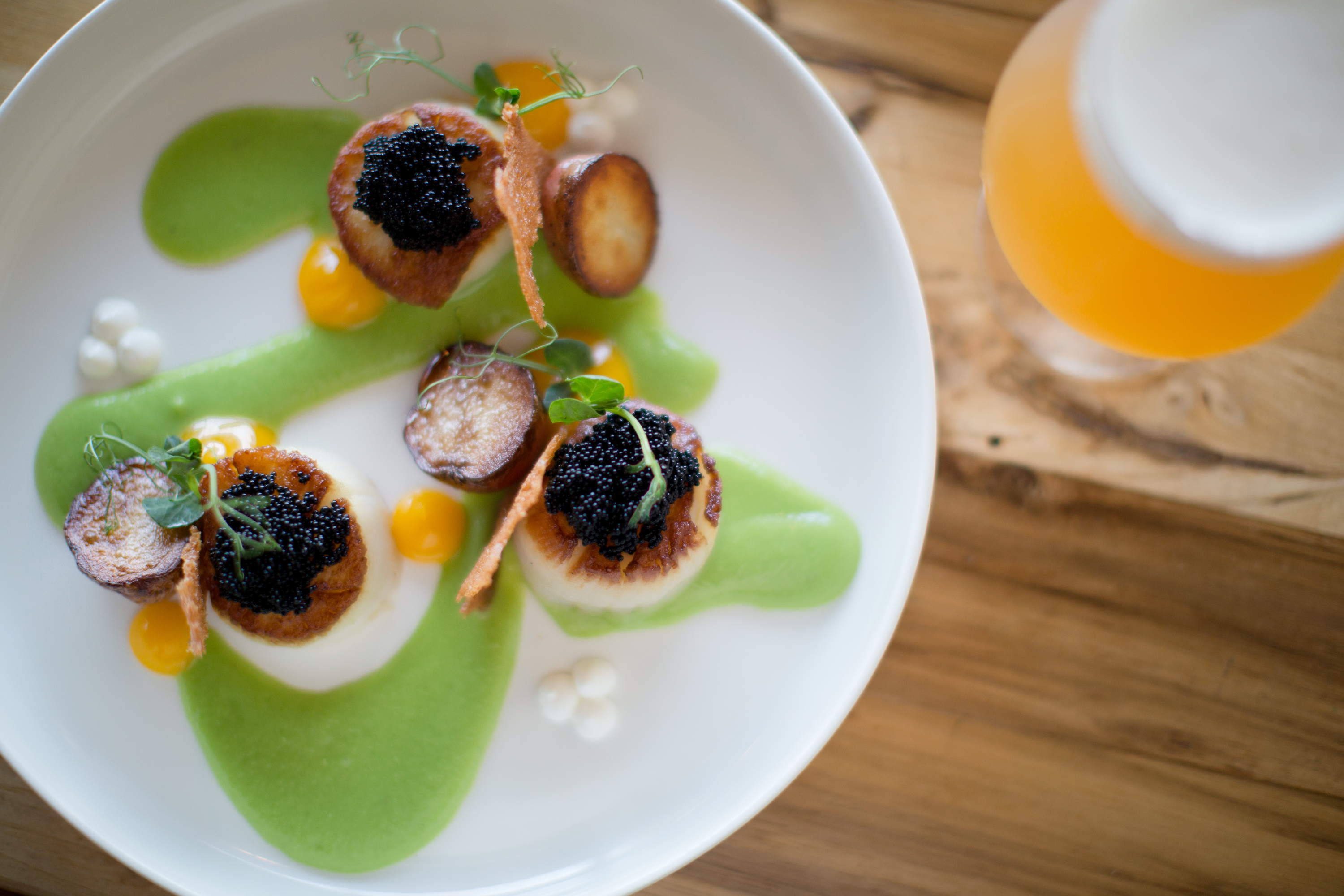
Everything is different now. It sounds like a tired phrase and one that people use far too often, but it’s also absolutely true. The COVID-19 pandemic is having deep effects on our society — from movies to sports to travel to education to supply chains to the service industry. Hell, sex, drugs, alcohol… virtually every industry has shifted.
Some of the most drastic upheaval has come to how we buy and eat food. Restaurants are transforming rapidly to deal with the new realities that 2020 has saddled them with. New rules are flying at chefs and restaurant owners at a breakneck speed and they often vary from place to place. Whether you’re in the industry or simply a food-lover, it can be hard to keep up.
To try to make some sense of this new world as many states (and the UK) enter “Phase II” of reopening protocols, we reached out to a collective of Beard Award-winning, widely-acclaimed chefs, brewers, and restauranteurs. We asked for their thoughts, fears, and hopes as they face a dining landscape that has been vastly and perhaps irrevocably changed by the pandemic.
Our panel is as follows:
- Sean Sherman, The Sioux Chef and Indigenous Food Lab, Minneapolis, MN
- Asma Khan, Darjeeling Express, London, UK
- Bob Szuter, Wolf’s Ridge Brewing, Columbus, OH
- Melissa Martin, Mosquito Supper Club, New Orleans, LA
- Vitaly Paley, Paley’s Place, Headwaters, Imperial, and Rosa Rosa, Portland, OR
- Eric Rivera, Addo, Seattle, WA
- Mashama Bailey and John O. Morisano, The Grey, Savannah, GA
- Isaac Toups, Toups Meatery, New Orleans, LA
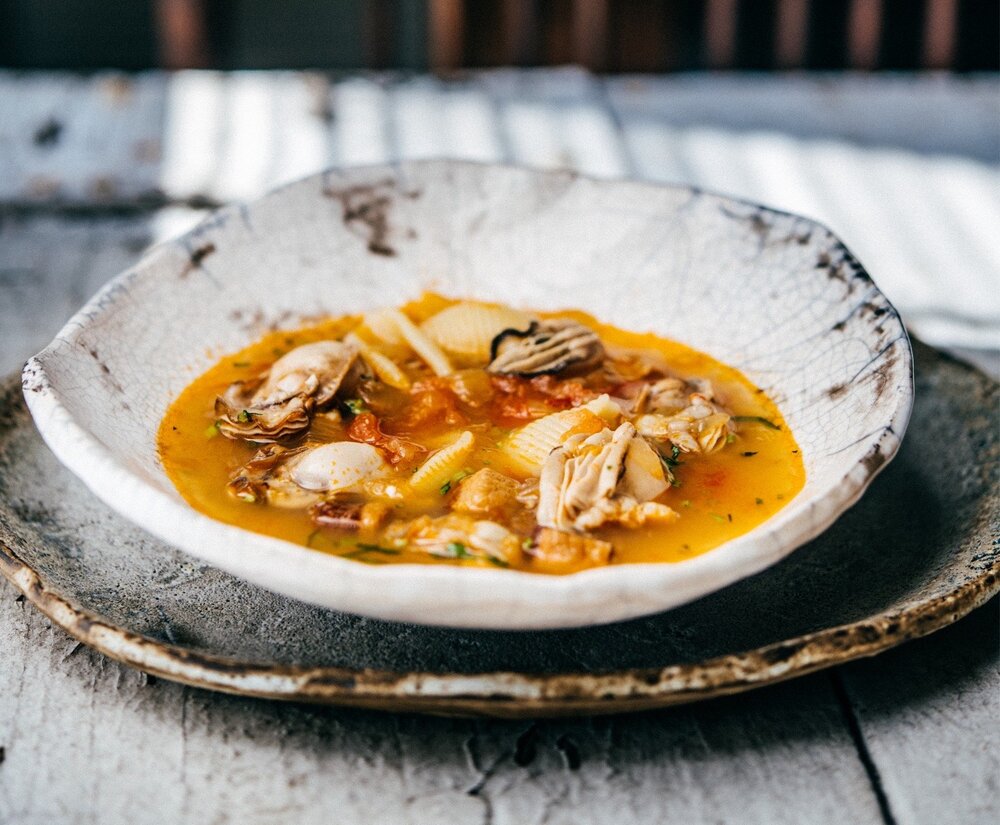
What does a reopen look like for you?
Sean Sherman: So for us, like so many food businesses, we were basically frozen in time as soon as COVID hit. We thought about pivoting to curbside or delivery but we weren’t set up for that, plus it wasn’t the right decision for the wellbeing of our staff. Instead, we made sure everyone got on unemployment right away, that everyone was safe, and that everyone understood the seriousness of it.
Our plan was to open a dine-in restaurant but now, obviously, that’s a bad plan due to COVID. So we’re now focusing on opening up our non-profit Indigenous Food Lab’s first phase. For right, right now, we’re working on revamping a community kitchen so we can focus on feeding any communities that need it, not just with COVID but with what just happened in our city. There’s a lot of support needed out there and so we’re getting ourselves set up for that.
Asma Khan: A reopen is going to be a challenge for us. But for me, I dream of the day that I can start again. That desire to start again will help me overcome other challenges.
Melissa Martin: As a small business, we were formed with organic intentions and have since preceded with measured steps in order to grow parallel with our best intentions for the restaurant we want to be. This is a sustainable business that pays its employees fairly and works continuously to create a healthy working environment.
Bob Szuter: Fortunately, we began preparing slightly ahead of the bar and restaurant closure in mid-March. We quickly moved to beer delivery which has been really helpful. Shortly thereafter, we worked with our point-of-sale provider, Lavu, and set up their online order and delivery platform, MenuDrive, to allow for beer/food carry out without having to rely solely on third party order and delivery services. As we look to reopen our on-premise business, we’re taking our time so we both do it safely and also not lose focus on what’s been working well for us.
Vitaly Paley: We’re offering carryout and testing the ground to see what people want to eat, while also putting some money in the bank for the opening. I think most people are leaning towards comfort foods. The opening will be informed by those revelations and, of course, by all of the safety protocols that we are putting in place. The more we educate ourselves, the better we will be prepared.
I tell my teams, it’s not a matter of who opens first, it’s who opens best.
Eric Rivera: I think it’s a little different for me. We have been the anti-restaurant for a while and we have remained open. Since starting this off it has been ‘Duct Tape and a Dream’ the entire way. So having my head on a swivel and being able to change the business as needed has been key to sticking around.
We have adapted to doing delivery, take-out, nationwide delivery, and lots of other things in order to keep things moving forward. As far as opening for walk-in service, I’m not rushing towards it considering there are a lot of factors still up in the air with testing, the security of the staff and guest, and safety protocols that need to be put in place in order to have a new style of service.
It’s going to be a while before we have walk-in guests.
Mashama and John: That’s a tough one. The Grey Market has reopened a few days a week. We have some business, but it’s not at a level that we can sustain at the moment. We think it’ll take some time to figure out hours/days open so that we do not hemorrhage cash by being open. Hopefully, over time, we will find that balance. With The Grey, we will try to open around the middle of this month.
Again, we are not sure what that means in terms of the number of days or hours.
Isaac Toups: My story is a little different. We haven’t closed a single day since the lockdown. We immediately shifted into curbside pickup and delivery. We then looked at our service industry family and how they immediately started hurting so badly. So we shifted the other side of the business into a soup kitchen for the service industry and eventually for everyone who was in need. By the end of May, we had sent 25,000 meals into the community from our tiny kitchen. We are fucking exhausted.
How comfortable are you with reopening?
Asma Khan: I am very comfortable. We will wait until we feel it’s safe for our team and safe for our customers.
Bob Szuter: We’re still a little uncomfortable with reopening right now. We’re certainly working towards that. But we know our customers are still hesitant to go out and sit down for an evening. We’ll also be paying close attention to what’s happening in Ohio. We hope the reopening goes well and we’re able to keep the numbers down here but, right now, it doesn’t make sense to expect our reopened spaces will be enough to carry us.
Melissa Martin: We have grown tremendously in the last six years and were looking forward to our best year with sold-out reservations and a cookbook being published on April 21st. The abrupt closing of our business was shocking and mind-bending. The abrupt ending of cash flow to pay my employees and my basic overhead was painful, not to mention my inability to support the farmers and fishermen that we use as vendors on a weekly basis. All lines were frozen.
Vitaly Paley: There’s no comfort in reopening at this point, there is only uncertainty and anxiety. A healthy dose of that is good, and we’ve opened each of our restaurants before so it’s not a total unknown, but this all feels very different.
Eric Rivera: I’m pretty comfortable because we can do it when it works for us. I don’t have investors or anyone I need to answer to, so I can make sure we are doing it right for everyone involved. We have so many other programs in place that having walk-in service would be a small amount of business and not really worth it at the moment, especially considering that guests have communicated to us that they don’t really want to come in right now.
Mashama and John: I think we are getting there. We’re figuring out how to stay as safe as possible. Really, the answer is to follow the guidelines — keep space between us and the guests, sanitize, wear masks, chefs with gloves, etc.
Isaac Toups: We immediately opened inside at 25 percent capacity following all the guidelines for safety. It’s gone pretty well so far and we’re still supplementing with curbside and delivery.
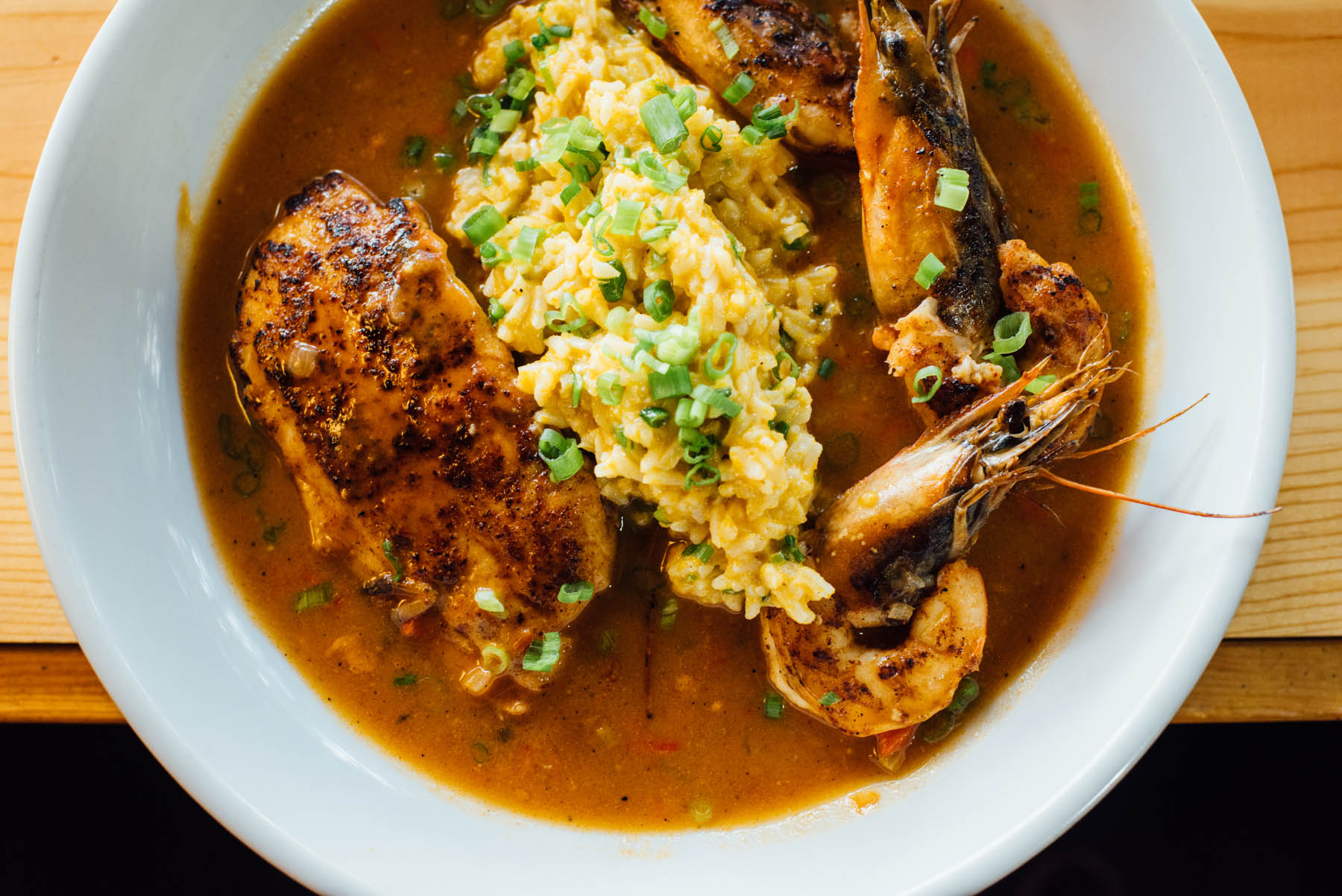
To what degree are you reopening faster than expected in order to stay afloat?
Sean Sherman: We’re unique, I think, because we were just renting a commercial kitchen space for a catering operation while preparing the construction of a restaurant. We just put the breaks on the restaurant. That means we ended up not having a lot of overhead through this, which helped us cut down on losses. But it’s going to be really rough on a lot of local restaurant owners. We just have to see what happens.
Asma Khan: I don’t plan to open at the time the government declares restaurants can be open. I’m going to wait. I’m going to study how others are coping. I’m in no rush to open because I have put my personal money back into my business and this will allow me to stay afloat.
Bob Szuter: We’ve been utilizing support from the PPP loan, so we’ve been able to slowly increase how and where we deliver beer and food. For example, over the past two weeks, we’ve added beer delivery to Cleveland, Akron/Canton, Cincinnati, Dayton, and Toledo. Because this has been successful for us, we’ve been able to make sure that when we reopen we’re comfortable with how we’re doing it.
I think the reopening caught us a little by surprise (only about two weeks notice) considering Governor DeWine said there’s so much we don’t know about this virus on the day he announced the reopening plans. So, again, as much as we’d like to offer something to our customers, we still need to make sure we keep our staff and customers safe.
Melissa Martin: We pivoted quickly and started feeding hospitals with a skeleton crew. My sous chef’s wife is a funeral director/undertaker. She felt like she had exposure. My son is an EMT living at my home, I felt like I had exposure. My FOH manager is a nurse in training and her grandmother passed of COVID. She felt like she had exposure. We fear exposing our workers who might not have health insurance or have a greater risk of being able to receive the right care if infected.
Vitaly Paley: We are having success with takeaway right now and I feel that delaying in-room dining would be the most prudent thing to do.
Eric Rivera: We aren’t.
Mashama and John: We are taking the opposite approach which is to limit hours/days to stay afloat. We cannot be open and have no guests — that is far too expensive.
Isaac Toups: We never closed.
What problems have surfaced that you didn’t expect?
Sean Sherman: It’s absolutely this uprising that’s happened which put us into a police state. And it’s still happening now. We still have a lockdown at night. And there’s just so much military presence. There’s no support from police staff and no one trusts the police staff at all right now anyway. It’s just such a weird situation to be in.
Our kitchen is inside this building called Midtown Global Market, which is kind of a multi-ethnic food hub. We’re right in the center of Lake Street where all the concentrated rioting and destruction happened. Every single building around us has pretty much burned to the ground. We were lucky because the building that we are in, part of it’s a residence with security 24/7. So on the first night, they were able to keep looters out. They then had to beef up security and basically just battle with looters for the next couple of nights. There were people trying to break in and people trying to start fires but the security was able to save the building.
Asma Khan: I didn’t expect the lockdown. Everything is unexpected — canceling direct debits, contracts, and having reminders of bookings on my phone come back to haunt me. The whole experience is unprecedented. It’s a very surreal existence.
Bob Szuter: Our staff is our top priority, so we’ve been doing our best to make sure they’re comfortable and safe during all of this. There’s a lot of fear and concern among the staff. It’s been a balance of ensuring their safety while also working within the PPP requirements. The latter has made it extremely difficult and hasn’t allowed us to focus on the goals of the program, putting more people back to work. In addition, before Covid-19, we were used to operating three full-service spaces: a private event space, a restaurant, and a taproom. We needed to figure out how to adapt our beer and food menus online to make sure it was operational for take-out and delivery.
Melissa Martin: We cooked for hospitals for a month under this stress and when the funds for this dried up we realized we had to start doing take out to cover our overhead, to use our PPP funds, to support farmers and fisherman that needed a place to sell their products, and to stay relevant as a restaurant in New Orleans.
Vitaly Paley: Shakespeare’s “how do I count the ways” comes to mind.
Eric Rivera: We had a couple of employees who had to quit because they had family members that work full-time essential jobs and they couldn’t find daycare so those employees left to help with those needs.
Mashama and John: Savannah was safe yesterday but we share in the anger and frustration over the ongoing killing of young black men by law enforcement. It got a little worrisome yesterday afternoon because preparing for civil unrest and potential violence is not something in our business plan. Also, when you are not operating normally stuff breaks and you don’t recognize it right away. We had a major flood at The Grey due to not being in the building — tree debris clogged a roof drain and had we been operating we would have noticed that before it did the damage it did.
Isaac Toups: I went through Katrina. I expected all these problems and was ready to roll with the punches.
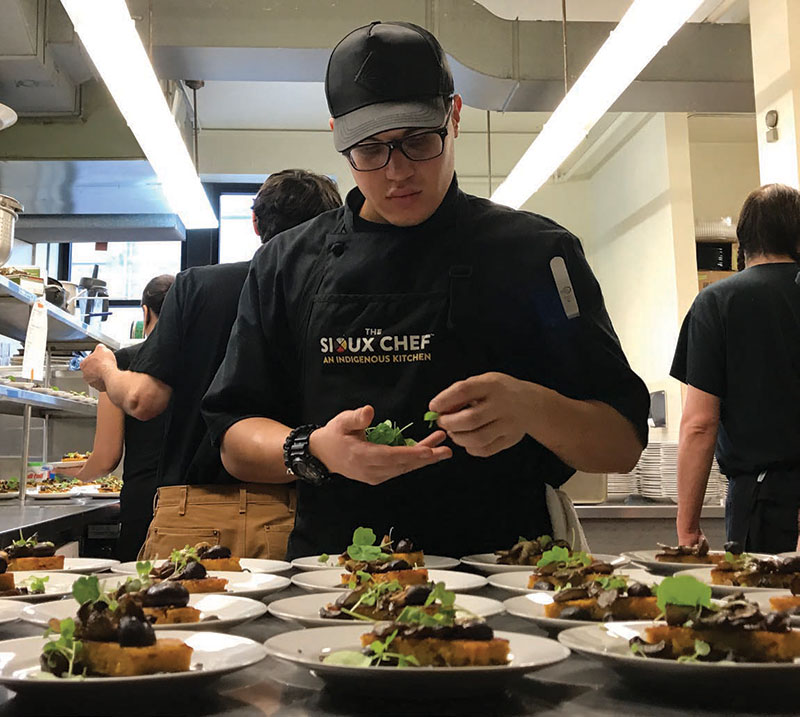
What concerns have kitchen staff brought to you?
Sean Sherman: At first, it was really focused on COVID. Now, people are really mobilized and motivated and just want to help. Still, we all have to be careful. We have to make sure we wear gloves and masks. Any one of us could be a carrier and we just want to watch out for everybody. So, we’ve set up a plan for safety in our kitchen. We don’t have to work with the public a ton, so we can really focus on making sure our kitchen staff is safe. That’ll give us time to figure out packing and distribution as we go along.
Asma Khan: The kitchen staff is desperately lonely. I’ve had to set up chat groups where I speak to them the whole day. I regularly send the groceries: fruits, the occasional box of 90 eggs. It’s a way to let them know Darjeeling Express is home in a time when they have been locked out of their homes.
Bob Szuter: Our staff has been tremendous through all of this. We’ve always operated as transparently as possible so that has helped us keep open lines of communication as we’ve moved through this. I think they understand we’re all doing the best we can and we’re maintaining open communication as we look to reopen to make sure they’re included in that process.
Melissa Martin: I offered full-time employment to former employees that rejected because of the assistance they were receiving on unemployment. This created a rift between employer and employee. My FOH was reluctant to come back to work because the unemployment money had given them a new life with new freedoms. Coming back to a restaurant that was not the same and having to pivot into a new work role for employees has been daunting. It has created a lot of tension and stress for owners and employees. It’s created an environment of new waters that we are constantly trying to navigate.
Vitaly Paley: Honestly, I have had no kitchen staff bring any concerns to me at all.
Eric Rivera: They wondered if we were closing or if they would see reduced hours. We have been busier than ever, so that has been the biggest surprise. We have PPE for them and have a set of protocols in place to make sure everyone is staying safe along with paid time off and benefits. I just want to make sure they are taken care of.
Isaac Toups: We immediately banded together like pirates and our only concerns have been how can we get it all done. I’m really proud of my crew.
What problems have front-of-house staff brought to you?
Asma Khan: It’s about feeling cut off from a very close unit. Not everybody has a family with them and some are living on their own, so it really is loneliness. Luckily, none of them has any financial struggles or concerns about their job security. They really just want to come back to work.
Bob Szuter: There’s been a lot of questions around pay. The PPP requirement to pay staff no less than 75 percent of their pay has complicated the payroll process. For example, when you have what were higher-earning tipped staff working alongside lower-paid kitchen workers, it’s really hard to justify paying them differently but we’ve had to do that because we didn’t want to take on too much debt should any portion of the loan not be forgiven. Again, the design and rollout of the PPP has been extremely complicated. The day the CARES Act passed, I was on a tele-townhall with a local U.S. congressman and he said the program worked well for a lot of small businesses but wasn’t well suited for bars, restaurants, and hospitality. We’re certainly seeing that firsthand.
Melissa Martin: We are not close to permanent closure except for the emotional toll this has taken on me. Each day I wonder if I can handle another week of this. I wonder if maybe we had a great run and its time for me to work in another field. But what field? Will there even be other jobs on the other side of this? We wonder what our restaurant could be — part market? part deli? part coffeeshop? How can we reinvent ourselves for a changing world? How can we remain accessible and helpful while still making our overhead and staying true to the values that are most important as a business owner?
Vitaly Paley: It runs the gamut from safety protocols to what their position will entail and just in general duties and compensation.
Eric Rivera: We weren’t built as a FOH heavy restaurant. Cooks and chefs did a lot of the table service along with our Director of Operations. It’s a different model that doesn’t rely on FOH to run the service standards.
Isaac Toups: There’s always going to be someone who doesn’t want to follow the rules. Mostly our guests have been compliant and truly wonderful.
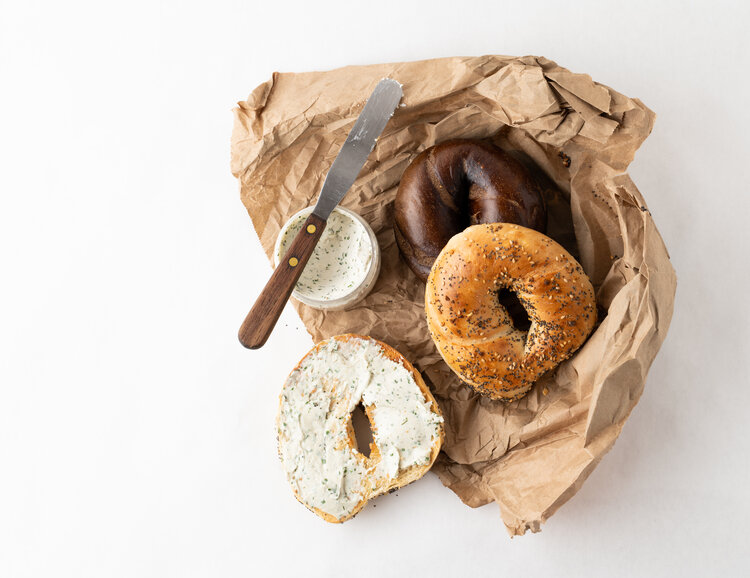
What sales goals do you have for the next month?
Sean Sherman: Again, we’re unique because we’re doing everything through the Indigenous Food Lab which is a 501c3 non-profit. That gives us a lot more flexibility. That makes the actions we’re taking more important than the sales — because we’re very lucky to have financial support from philanthropic groups.
Asma Khan: I have no goals. I just want to open with an open heart and just start. I do not set goals when it comes to money. I am someone who is not great at number crunching and because of the way I began the business — from the kitchen in my home — the business aspect of the restaurant is not something I focus on too much.
Bob Szuter: Our total sales have been down about 60 percent — our beer sales have helped maintain a floor of revenue. Our goal is to get revenues to a level where we can sustain current staff by the end of July.
Melissa Martin: I want diners to know we are doing the very best we can as humans, as a business, and as a restaurant in particular. We take your safety very seriously and we are gathering together the best of products and supporting a community of people every time you order our food. We are all coming together each week as a business to work in this extreme new environment. Each day comes with a new challenge and we are trying to meet each new demand and pivot to meet the needs of our community and our restaurant.
Eric Rivera: I would like to maintain the same amount of revenue we have for this month. That’s going to require more out of the box thinking. It’s weird to think of things that way, but I feel like we have to have the mindset of improving and growing instead of looking back or panicking.
Isaac Toups: That’s a hard one. I’m expecting them to be around 50 percent of usual.
How close to permanent closure are you?
Sean Sherman: We’re fine on that front. We were in transition from The Sioux Chef operations and ready to roll out with the Indigenous Food Lab when all of this started.
Asma Khan: I was not at all, thankfully.
Bob Szuter: A lot of that depends on the forgiveness status of our PPP loan. If we run into issues with that, we’re going to have to find a way to deal with paying that back in an unreasonably short period of time — two years. That would significantly impact our cash flow.
Melissa Martin: I hope we come out a stronger more accessible restaurant on the other side of this.
Vitaly Paley: Not an option.
Eric Rivera: We are not.
Mashama and John: I think that we are approaching it differently than that. Staying closed for as long as we need to is more sustainable than opening too soon or too fast. Right now we are testing the waters with The Grey Markt. We will do the same with The Grey and if we cannot sustain it, we will close up again.
Isaac Toups: Amanda and I will never give up. I’m not closing. So I’ll do whatever it takes to survive.
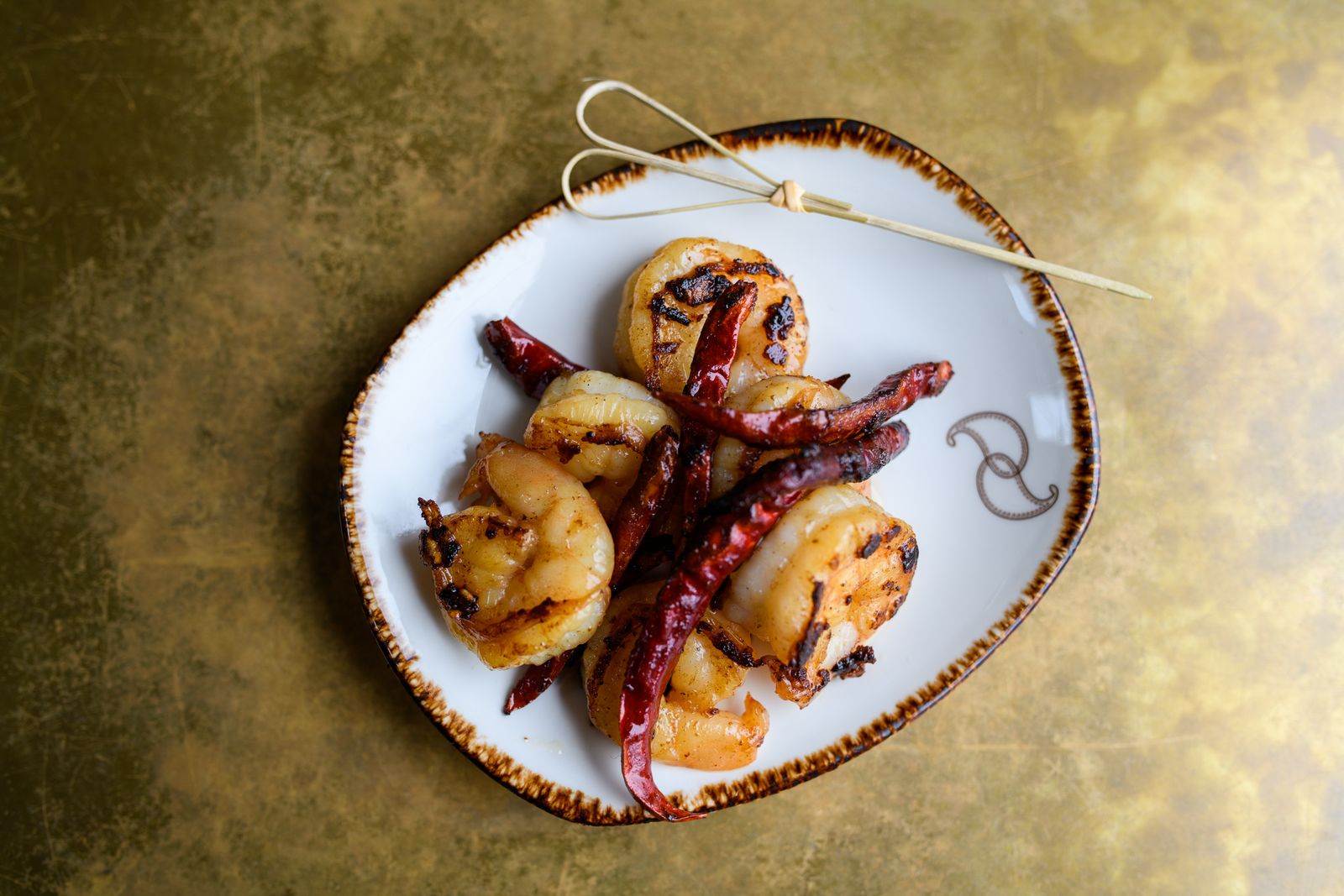
What do you want diners to know before they visit?
Sean Sherman: For us, it’s going to some time before we open up a sit-down section to our restaurant. We’ll be doing a lot of pop-up dinners over the later summer and moving into next fall. When things get a little safer and we figure out how to maneuver in this new reality. There will be a lot of expectations for customers being around other people. But I think customers are pretty receptive to that situation, and we’ll just help spell things out very clearly with clear boundaries that people need to be aware of.
Asma Khan: I want them to know that I will not rush and open for financial reasons. I want the experience to be meaningful for them and for my team. We will only begin service when we are all emotionally and physically ready to provide a great dining experience for our customers.
Bob Szuter: Not only are we going to do everything we can to keep them and our staff safe, but we’re also trying to give them a compelling reason to come out and dine. We’ve been extremely humbled by the support and patience of the local community. We going to try some things. We hope they work. They may not. We’ll keep working to give them the best dining and drinking experience we can.
Melissa Martin: We can’t reopen our dining room until my staff feels more comfortable and until we are in Phase Two of this crisis. We need to feel safe. I won’t risk my staff’s health for money. Even if we are bailing water and really need to reopen.
Vitaly Paley: We are all a team and all a family. We have a lot of responsibility for keeping our guests satiated and safe. All of our teams are working hard to make sure our restaurant is sanitized, well-stocked, and that our guests will have everything they need. Our hospitality has not changed, how we share a meal together has.
Eric Rivera: We are going to keep changing things as needed in order to keep maneuvering through this. It’s not easy or perfect but we are trying.
Mashama and John: We intend on retaining our identity. We are not going to dumb down what we do.
Isaac Toups: Please be patient. We are killing ourselves to survive and also give you as normal of an experience as we possibly can, as safely as we can.
What are your goals during this tenuous time?
Sean Sherman: Our goal is to get our work out there as fast as we can. This time period makes our work even more relevant in dealing with issues on food security and dealing with food education — especially with Indigenous foods.
Asma Khan: My personal goals are to find more time to better my life and the lives of those around me.
Bob Szuter: Beyond limiting the growth of the pandemic, our goal right now is to build back as much of a business as we can to keep our staff employed and limit the amount of additional debt we take on to do so.
Melissa Martin: Our sales goals are to stay afloat. To bring in a mere fraction of what we would normally bring in.
Vitaly Paley: These are not goals, but a constant refrain for me during these times is to rethink, renew, redo, and reopen. I’m more concerned about the unruly customer. We have to think about safety as well as hospitality, kind of like flight attendants. We’ll have to say it more than once. We’ll have to write it down. Redundancy is important, people are really distracted and not really focused.
Eric Rivera: Pay my employees. I don’t care about me. I want them to feel like they have a real job and they can get paid for the work they do.
Mashama and John: Survival.
Isaac Toups: Stay flexible. Stay creative and for fuck’s sake, stay positive.
